Posted on 8/31/2023
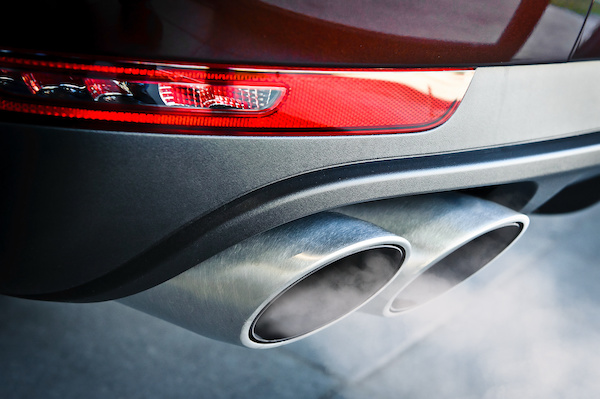
Cars are more than just machines with wheels; they're also mobile chemistry labs on a mission to transform fuel into motion. But in this chemical dance, there's a byproduct: exhaust fumes. These fumes might seem innocuous, but they're anything but. The Dirty Truth About Exhaust Gasses Before we dive into the cleanup act, let's understand why exhaust gasses are the bad actors in the automotive world. Carbon Monoxide (CO): Your car's engine produces carbon monoxide, a colorless, odorless gas that can be deadly in high concentrations. It hinders your body's ability to carry oxygen, leading to dizziness, nausea, and even death. Hydrocarbons (HC): These unburned fuel remnants can react with nitrogen oxides (NOx) and sunlight, forming ground-level ozone, a major component of smog. Ozone can irritate your lungs, exacerbating respiratory problems. Nitrogen Oxides (NOx): NOx emissions contribute to acid rain and ground-level ozone, both of which harm the environment ... read more
Posted on 7/31/2023
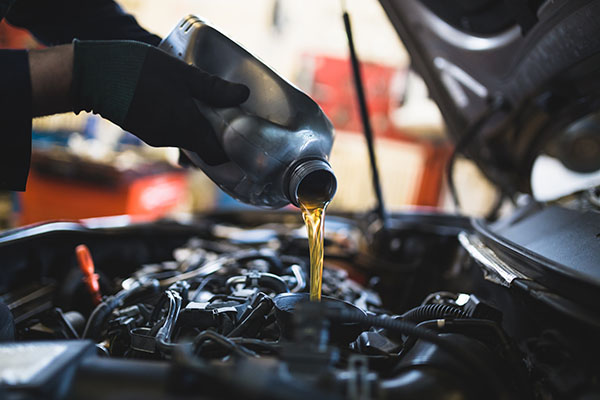
As a responsible car owner, you've likely heard that changing your oil when it changes color is crucial for maintaining your vehicle's health. But is this advice always accurate, or is it just a widespread misconception? Today's blog will explore the truth behind this common practice and offer valuable insights to help you make informed decisions about your car's maintenance. Understanding the Oil Change Interval First, let's clarify the standard oil change interval recommended by automotive experts. Modern engines and high-quality engine oils have evolved, enabling longer oil change intervals compared to older vehicles. For many vehicles, the standard oil change interval ranges from 5,000 to 7,500 miles or every six months, depending on driving habits and the type of oil used. Why Does Oil Change Color? Engine oil typically appears amber or light brown when new. As it goes through its cycle, the oil accumulates dirt, car ... read more
Posted on 6/30/2023
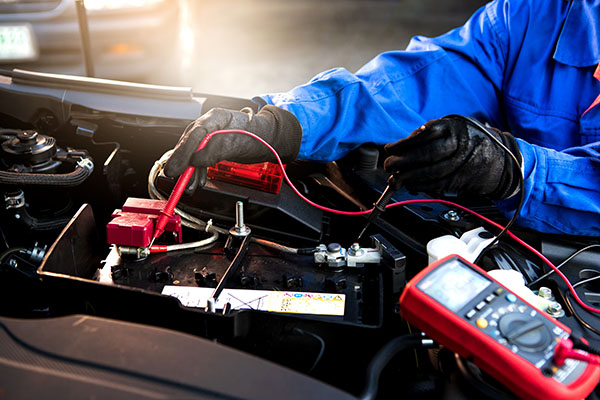
Modern vehicles are equipped with complex electrical systems that power various components and control critical functions. When an electrical issue arises, mechanics are tasked with diagnosing and repairing the problem. But how do they know which specific electric component is causing the problem? Well, in today's article, we will take a closer look at exactly that, so keep on reading if you want to find out more! The short answer is a diagnostics tool - most commonly an OBD-II scanner. Mechanics use various diagnostic tools to aid in troubleshooting electrical issues. One of the most common tools is an OBD-II (On-Board Diagnostics) scanner, which connects to the vehicle's computer system. The scanner retrieves error codes that indicate specific problems in various systems and components. These codes serve as a starting point for further investigation. Gathering Information Before delving into the diagnostic process ... read more
Posted on 5/31/2023
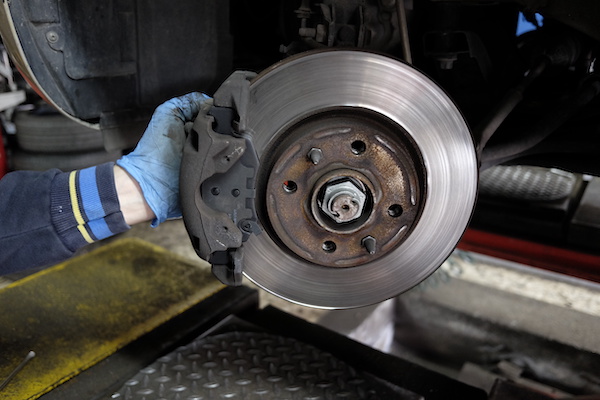
Brake rotors just like brake pads are important and crucial to the car's braking system. They need to be replaced as soon as any wearing is noticed. It is important that you know all the indicators of brake rotors in need of changing. We've listed some for you below. Signs of Worn Out Brake Rotors Thin Brake Rotors - The physical thickness of brake rotors says a lot about their wearing. Turn brake rotors must be replaced as soon as possible. Loud Noises When Braking - The noises tend to be caused by corrosion and other worn-out components. This may also be due to the mechanical wear sensor that comes with most brake pads today. It is specifically designed to make audible noises when brake rotors are too thin and in need of replacement. Warped Brake Rotors - Warped brake pads are mostly caused by heat! Too much heat causes the surface of the brake rotors to become uneven and warped. Different brake rotors are created with different purposes the likes of riding on normal ... read more
Posted on 4/21/2023

With Earth Day coming up, many individuals are looking for ways to limit their carbon footprint and help protect the environment. One way to do this is by adopting eco-friendly driving habits. Not only can this help the planet, but it can also save you money on gas and reduce wear and tear on your automobile. Here are some tips to follow for eco-friendly driving: Drive Smarter - One of the most effective ways to reduce your fuel consumption and emissions is to drive smarter. You can improve your fuel efficiency by up to 30% by accelerating and braking gently, avoiding rapid and sudden braking, and maintaining a steady speed. Plan Your Route - Another way to save fuel and limit emissions is to plan your route carefully. Avoid congested routes and rush hour traffic, and plan your trips to avoid unnecessary detours or backtracking. A GPS device or a smartphone app can go a long way in helping you find the most fuel-efficient route. Reduce Your ... read more
Posted on 3/29/2023
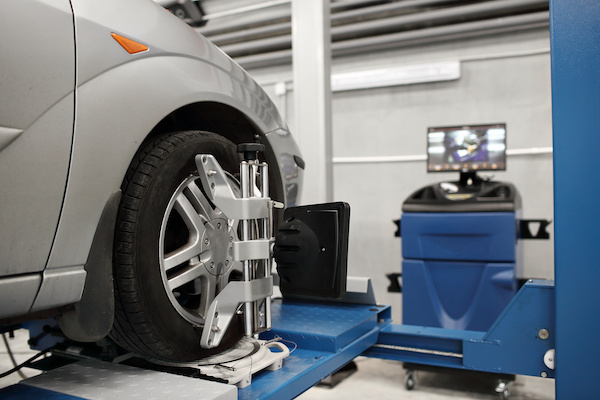
Wheel alignment is crucial to ensure your vehicle runs smoothly and safely. When your wheels fall out of alignment, your car might start to drift to one side, the steering wheel might not be centered, and your tires might wear out unevenly. Misaligned wheels can also decrease your vehicle's fuel efficiency, which can lead to costly repairs in the future. In this blog, we'll explore what causes wheels to fall out of alignment and what you can do to prevent it. Causes of Misaligned Wheels Hitting Potholes and Curbs: One of the most common reasons for misaligned wheels is hitting potholes or curbs. These impacts can cause the suspension components to bend or break, resulting in a change in wheel alignment. Even minor impacts over time can eventually lead to misaligned wheels. Wear and Tear: Normal wear and tear can also cause misaligned wheels. Over time, suspension components such as the ball joints, tie rods, and control arms can wear out, c ... read more
Posted on 2/28/2023
.jpeg)
Steering systems are a critical component in the functioning of any vehicle. They allow drivers to control the direction of the vehicle and ensure safe maneuvering on the road. There are various types of steering systems, each with its own unique components and working mechanisms. Understanding how these systems work can help you diagnose and fix any issues you may be experiencing with your vehicle's steering. Rack and Pinion Steering System This is the most common type of steering system used in modern vehicles. The system consists of a gear-like mechanism, known as the rack and pinion, that connects the steering wheel to the wheels. The steering wheel rotates, which in turn moves the pinion gear. The pinion gear then moves the rack, which then turns the wheels. This type of steering system is highly efficient, easy to maintain, and provides precise control over the vehicle's direction. Power Steering System Many modern vehicles come equipped with power steering systems, w ... read more
Posted on 1/31/2023
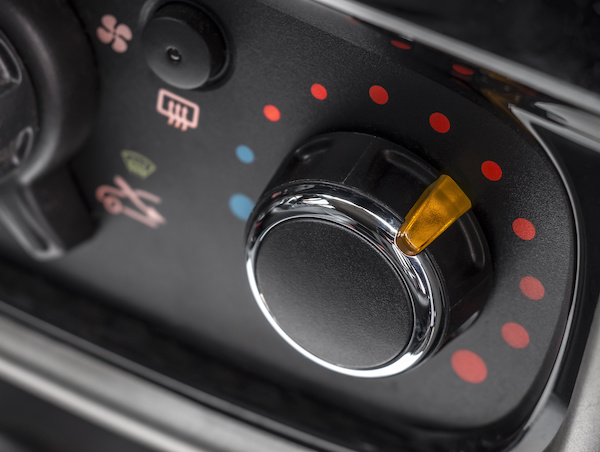
Having a good heater can make a big difference in the cold winter days. Most drivers aren't worried about it being a problem, but what happens when it stops working? While causes may vary it is a much more common issue then you would think. Here you will find some answers to why it happens and how to stop it from repeating itself. Coolant Problems The heating unit in your car depends on coolant to work. If it isn’t filled up or has completely dried out, hot liquid can’t travel to the heater core and warm up the air around it. That's why you should keep an eye on your coolant level, especially in the winter. Be sure to have it checked regularly so you can avoid this from happening. Broken Thermostat Your car has sensors all over it, from front to back and one of them is called a thermostat, and its job is to track the temperature. This is the most common issue that causes problems in the AC and heating, not only that but with the engine as well. Without this sens ... read more
Posted on 12/23/2022

A stalling car can be very frustrating, especially when you're unaware of the cause of the problem. Read on to find out why your car might be stalling. 5 Causes of a Stalling Car A stalling car is not a rare occurrence and there are several possible causes. The main purpose of a vehicle is to get you around in time so, stalling defeats that purpose. Let's look into some possible causes of a stalling car. Malfunctioning alternator The alternator is a significant part of the vehicle that is responsible for many functions. When the alternator is malfunctioning or about to die, it can cause a vehicle to stall. Fuel Deficiency The first step you should take if you notice your vehicle stalling is to check your fuel level. If the fuel warning light is on then that might be the cause of the stalling. The next and obvious step is to fill up your gas tank and your car will return to its full function. Clogged Air Filter A clogged or dirty air filter will interfere with your vehi ... read more
Posted on 11/30/2022
.jpeg)
Headlight replacement may not be as easy as changing a light bulb in your home. If you know what you’re doing, it may be close. But there are certain steps that you need to take to successfully renew your headlights. Read on to learn more about headlights and how to replace them. Your vehicle’s lighting system is straightforward. It includes the bulb, relay, fuse, and switch. Whenever you turn your headlights on, the switch activates a relay and provides an electrical current between the bulb and the battery. This process allows your headlights to shine bright, so you can see the path ahead of your vehicle. It also lets other vehicles know that you are behind them. That is why impaired headlights can be a major safety hazard. In most places, it is illegal to drive without working headlights. Headlight problems are either an electrical problem or a physical failure with the bulb dying out. Today, we will be discussing how to repair the latter. When your headlight bulbs di ... read more